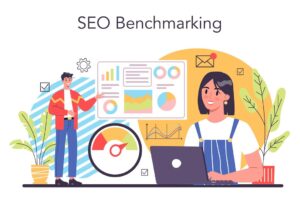Empowering Learning Through Explanation and Mistakes ????
Introduction: Exploring the Power of Explanation and Embracing Mistakes ????
Welcome to a new perspective on learning, a journey that takes us through the art of explanation and the beauty of embracing our mistakes.
I’m Deepak Shukla, an entrepreneur who thrives on pushing the boundaries of knowledge and self-improvement.
In this exploration, we will delve into two fascinating concepts: the “right to learn” and “errors while learning.”
These concepts, when harnessed effectively, can empower us to expand our understanding, reinforce our mental models, and build the foundation for generative learning.
Write to Learn: Reinforcing Mental Models Through Explanation ????
The Art of Writing to Comprehend ????
Imagine facing a complex subject or term, say, “search engine optimisation.”
How can you ensure that you not only understand it but also reinforce your comprehension?
The answer lies in the art of “writing to learn.“
When you are challenged to explain a concept in your own words, you embark on a mental journey that strengthens your understanding.
This practice pushes you to organise your thoughts and create a coherent explanation.
In essence, you’re building a mental model of the concept, making it easier to recall and apply in the future.
The “write to learn” technique encourages you to break down complex ideas into manageable pieces.
As you strive to convey the concept in simple terms, you discover gaps in your knowledge, prompting further exploration. It’s a powerful tool to gauge your understanding and enhance it.

Unveiling the Right to Learn at Pearl Lemon ????
At Pearl Lemon, my entrepreneurial endeavour, we’ve embraced the “right to learn” concept as a foundational element of our culture.
We encourage our team members to write explanations of various subjects, fostering an environment of continuous learning
For instance, we may challenge our team with questions like, “Can you explain what ‘search engine optimisation’ means in 300 words or less?”
This exercise not only reveals the depth of our team’s understanding but also offers an opportunity for growth.
It’s a practice that empowers our members to expand their knowledge and develop a knack for explaining complex topics in a simplified manner.
Errors While Learning: Embracing Mistakes for Stronger Recall ????
The Strength of Errors in the Learning Process ????
Mistakes and errors are often perceived as stumbling blocks on the path to knowledge. However, these setbacks hold incredible potential for strengthening our memory and recall.
When we make mistakes while learning, particularly during the process of retrieval and recollection, our brain engages uniquely and powerfully.
These moments of error force us to encode the correct information more robustly. They highlight the areas where we faltered, reinforcing our memory of the correct response.
Generative Learning: Building Mental Models for Mastery ????
Generative learning is a concept where you attempt to produce an answer, even when you’re uncertain of it. The act of grappling with an unknown answer is a remarkable way to build mental models.
This form of learning lays the groundwork for understanding new information by pushing your brain to create hypotheses based on existing mental models.
It’s a powerful technique that empowers you to connect your previous knowledge to the current challenge.
Consider it as an exercise for your brain, where you actively engage in the process of generating solutions.
When you’re eventually provided with the correct answer, your brain eagerly incorporates it into your mental model.
This dynamic approach to learning cultivates a mindset where challenges become opportunities to expand your knowledge.
The Generative Learning Cycle: Leveraging Past Knowledge for Future Success ????
Expanding Your Learning Universe ????
Generative learning doesn’t operate in isolation.
It thrives when you’ve accumulated a diverse body of knowledge and mental models over time. Your past experiences and insights become the building blocks for generative learning.
This cyclical process can be likened to expanding your learning universe.
With each generative learning experience, you add to your arsenal of mental models, which in turn enable you to approach new challenges more effectively.
The broader your understanding of various subjects, the more adept you become at solving problems and generating answers.
The Real-World Impact of Generative Learning ????
The practical impact of generative learning extends far beyond the realm of academia.
It shapes your problem-solving abilities, decision-making skills, and creativity in real-world scenarios.
Imagine a business scenario where you’re faced with a unique challenge.
Your ability to generate solutions, rooted in your extensive mental models, sets you on a path of innovation and problem resolution.
Generative learning empowers you to tackle complex issues by drawing from the wealth of knowledge you’ve acquired.
Generative learners are often at the forefront of groundbreaking ideas and solutions.
Their capacity to connect seemingly unrelated concepts and develop innovative answers makes them valuable assets in various professional domains.

Conclusion: Empowering Learning, One Mistake, and Explanation at a Time ????
In the realm of knowledge and self-improvement, the power of explanation and the embrace of mistakes cannot be overstated.
As you embrace the “right to learn,” you reinforce your mental models, enabling you to grasp and convey complex ideas with ease.
Moreover, the beauty of “errors while learning” lies in their role as catalysts for robust memory formation and improved recall.
Generative learning, driven by the commitment to produce answers even in the face of uncertainty, propels you into a cycle of continuous growth.
It relies on your past knowledge and experiences to tackle future challenges creatively.
The path to empowering learning is not about avoiding mistakes or simplifying concepts—it’s about actively engaging with them.
Embrace your mistakes, explain your understanding, and engage in generative learning.
As you do, you embark on a journey of intellectual empowerment and personal growth, one mistake and explanation at a time. ????
In your quest for learning and self-improvement, remember that the power of these concepts is not limited to the confines of academia. They are tools for
Key Takeaways
- Write to Learn: Writing to explain complex concepts in your own words strengthens your understanding, helping you build mental models for better recall and application.
- The “Right to Learn”: Encourage continuous learning by fostering an environment where team members can explain various subjects, promoting personal and collective growth.
- Embrace Mistakes: Errors in the learning process enhance memory and recall. They force the brain to encode correct information more robustly.
- Generative Learning: Attempting to produce answers, even when uncertain, builds mental models and connects previous knowledge to new challenges.
- The Generative Learning Cycle: Accumulating diverse knowledge and mental models over time expands your learning universe, enhancing problem-solving skills and creativity.
- Real-World Impact: Generative learners excel in various professional domains, using their knowledge and innovative thinking to tackle complex issues.
In the journey of intellectual empowerment and personal growth, embrace explanation and mistakes as powerful tools for continuous learning and self-improvement.
Blog Summary
In “Empowering Learning Through Explanation and Mistakes,” Deepak Shukla explores the transformative potential of two key concepts: the art of explanation and the embrace of mistakes in the learning process. Writing to comprehend complex subjects aids in the reinforcement of mental models, enabling individuals to better understand and articulate intricate ideas. Deepak highlights the “right to learn” as a foundational principle at his company, Pearl Lemon, where team members are encouraged to explain diverse subjects, fostering an environment of perpetual learning. Embracing errors as opportunities for memory enhancement is another crucial facet of effective learning. The concept of generative learning, involving the active generation of solutions even in uncertain circumstances, is showcased as a means to build mental models and enhance problem-solving abilities. Deepak emphasises that these empowering concepts extend beyond academia, influencing real-world problem-solving, decision-making, and innovation, ultimately driving intellectual empowerment and personal growth.




